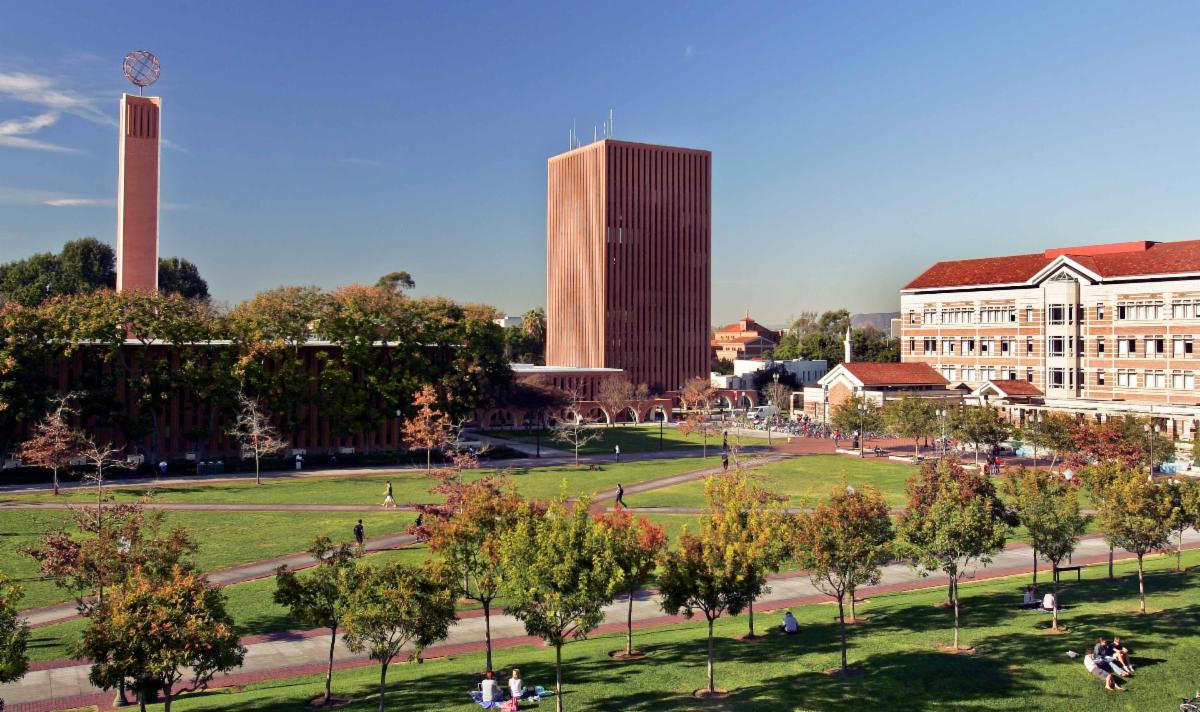
Pullias Center Presents Five Alumni with Awards to Support Racial Equity-Related Research
The Pullias Center asked the organization’s alumni to submit proposals for research projects that explore racial equity and inclusion in higher education and presented $5,000 awards to support five of these projects.
The five winning projects were selected through a blind review conducted by Pullias Center faculty along with Adrianna Kezar, Director of the Pullias Center. The winners were first announced internally at a virtual event in October that celebrated the Center’s 25th Anniversary.
“Anyone who has worked for the Pullias Center knows of our commitment and mission to improve college access and success for underserved and underrepresented students,” notes Kezar. “With the center celebrating 25 years, it seemed like a great opportunity to empower our alumni from over the last quarter century to join us in understanding and addressing issues around racial equity in higher education. Conversations surrounding racial equity in political and social landscapes are currently at an all-time high and we want to support this pivotal moment in history by amplifying the voices of the underrepresented and continue discussing ways to combat systemic racism.”
Each of the five projects explore a different facet of systemic racism that directly impacts Black, indigenous, people of color (BIPOC) access to education, specifically postsecondary education. The projects will study homelessness, foster care, technological barriers, racial disparities in specific regions, the impact of university governance, and safe spaces in higher education.
The first award recipient is Sharla Berry (USC ‘17), who will conduct a study on “Technology and College Access: Understanding the Unique Challenges and Opportunities Black Students Face.” Berry’s project will examine the barriers that Black students face in attaining college access. Specifically, the project will explore how technology plays an imperative role in providing students with the right opportunities and resources to attain college access. In her proposal, Berry noted that “[while] learning about college in the past involved receiving viewbooks in the mail and going to on-campus events, students [today] are increasingly required to know how to use technology to learn about colleges [as] college websites are one of the most widely consulted resources for students seeking college information.” Berry hopes that her project will further shed light on how technology is a growing barrier to educational opportunities for certain students of color.
The second award goes to “Homeless and Foster Youth, Racial Inequity, and Policy Shifts for Systemic Changes,” by James Dean Ward (USC ‘14). Ward’s project examines economic, social, and political forces that result in racial disparities within foster and homeless youth and how their unique experiences directly impact their access to educational opportunities, specifically focusing on their postsecondary experiences. “We know there are a myriad of other obstacles students face” notes Ward in the proposal, “including house and food insecurity, the ability to afford books, prejudices based on their identity, mental health issues, a lack of supportive adults, and disparities in social and culture capital, many of which are magnified for foster and homeless youth.” Furthermore, his project will touch upon the interaction between racial identities and other individual identities and how these multifaceted identities influence students under a homeless or foster status.
The third award will support “Getting the Boards Involved: Considering Racial Equity at the Highest Level of University Governance,” by Raquel M. Rall (USC ‘14). Rall’s project examines the role a university’s board of trustees plays when universities seek to combat racial inequity on-campus. “Whether boards are ignorant of the racial imperative, too far removed from the topic, or simply do not want to engage in the work, I am concerned that they do not know how to effectively enter the race conversation even if they wanted to,” explains Rall in her proposal. Thus, she plans to create a general “guidebook” that will outline what board members need to know about racial equity and inequity and how it relates and impacts their decision-making roles. Rall hopes that her guidebook will lead to digestible background information and tangible takeaways that will help board members better understand their explicit and implicit roles in worsening, improving, or maintaining how campuses address racial equity.
The fourth award goes to “Understanding the Narratives of Safe Space to Inform Higher Education Policy” by Cecile Sam (USC ‘12). Sam’s project will examine the idea of “safe spaces” in higher education by drawing on over 400 news articles from 2004-2018 to formulate a critical discourse analysis of how the term “safe space” has been reported in higher education news. “How people define what is a safe space and who needs safe space becomes important, especially as policies around safe spaces are created and implemented,” notes Sam in her proposal. Her goal is to clarify the different ways people understand or enact safe spaces so that institutions who choose to invoke them can make an informed decision on how and what they want them to look like.
The final and fifth award will support the study of “The State of Black Students in Higher Education: Cincinnati and the Southwest Ohio Region,” by Antar Tichavakunda (USC ‘18). This project will provide insight to how anti-blackness manifests in higher education access and persistence for Black people in a region with a large Black population. “When I moved to Cincinnati as an Assistant Professor I was disappointed to find that information about Black students and college success was not readily available,” shared Tichavakunda in the proposal. Thus, he hopes the project will fill the gaps and serve as a framework for other cities and regions interested in investigating the state of Black people in higher education for their specific municipalities.
To learn more, subscribe to our monthly newsletter to receive updates on each of these projects.